'Take paradise and put up a parking lot' | Fear, excitement among mix of emotions for eastern Lincoln County growth
Census estimates show eastern Lincoln County, which includes Denver and Triangle, saw a 33% growth in its population in the last decade.

As the housing market in the Charlotte region continues to boom, many homeowners are now looking across Lake Norman to eastern Lincoln County.
Eastern Lincoln County's population jumped more than 33% in the last decade, according to census estimates. In that same period, the city of Charlotte had a 20% growth in population.
This changing population has led to a surge in home and multi-family construction, as new neighborhoods, with names referencing the area's agricultural roots, are sprouting up on land once home to crops and livestock.
Shannon Avason, a realtor with The Rockel Group, said families are drawn to Lincoln County's low taxes and faster commutes into Charlotte.

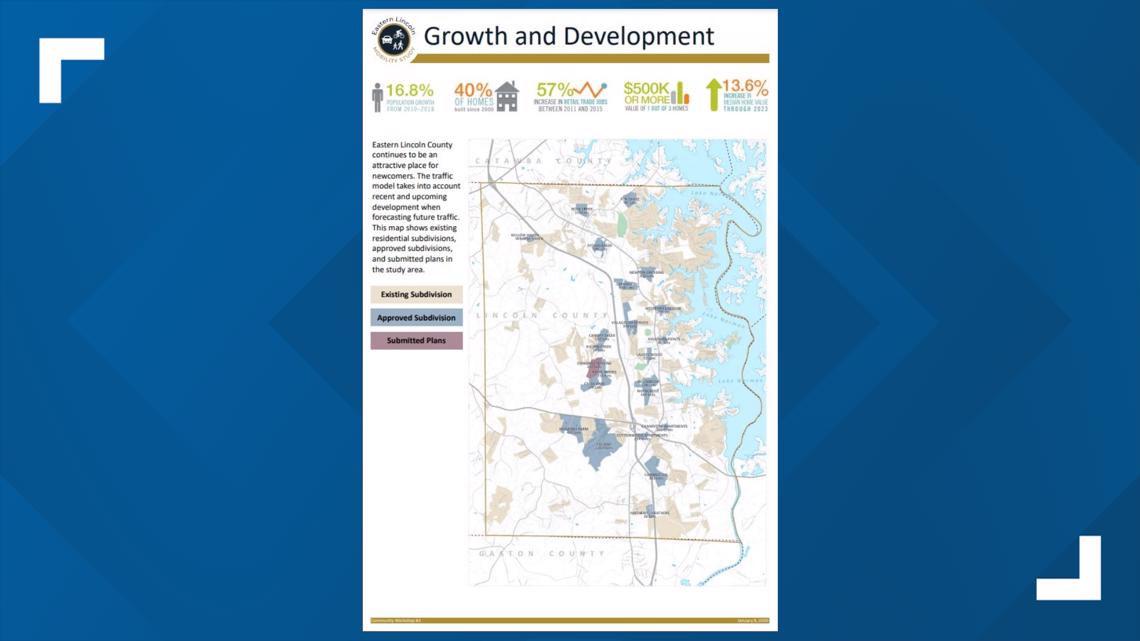
"Over the past three years, it's been substantially higher," Avason said, referring to the area's growth. "I know there's a lot of people that see the growth and get worried, but I think that the commissioners have done a really good job keeping it contained and keeping it under control."
The county hasn't approved a new subdivision since November 2018, but the growth eastern Lincoln County's already experienced is producing a wave of emotions, from elation and optimism to sadness and disappointment.
"This is a sad ride right here." Renee DeLaPorte

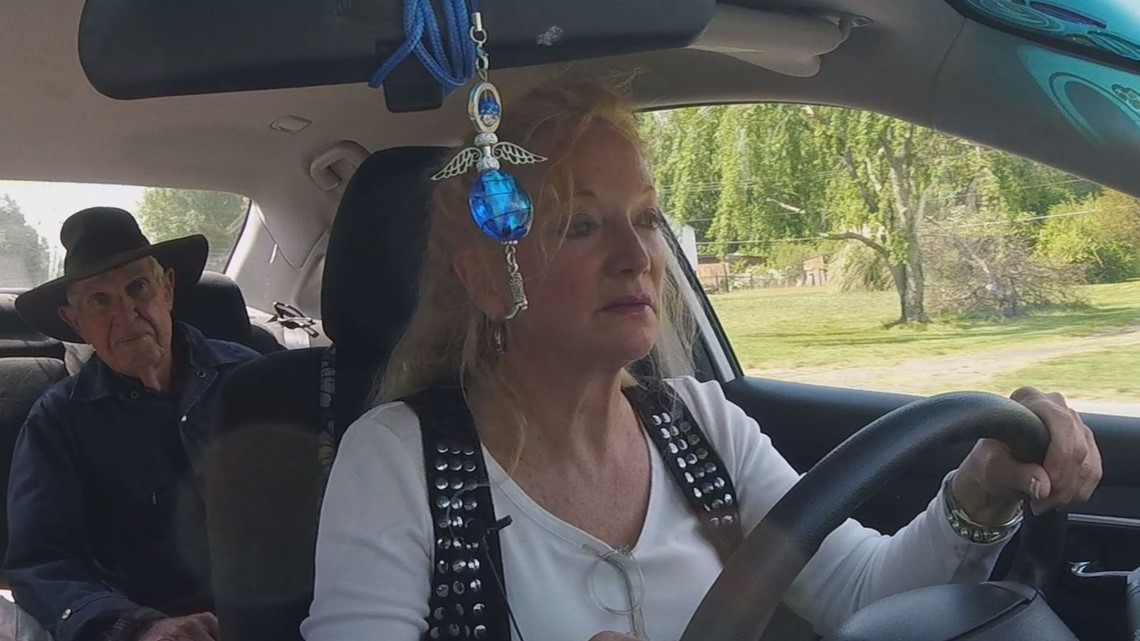
Renee DeLaPorte often goes on country drives with her 90-year-old neighbor, Jimmie Sifford, and their drives have grown more alarming with each flick of the turn signal.
"That's disgusting," DeLaPorte said as she stopped to look at a construction site. "I hate to see it. I'm not against development, but it's too much."
DeLaPorte has lived in eastern Lincoln County for 20 years while Sifford has lived here all his life.
"This is a sad ride right here," DeLaPorte said. "People want to get out of the city and come to the country, and then they make the country look like the city. Doesn't make any sense."

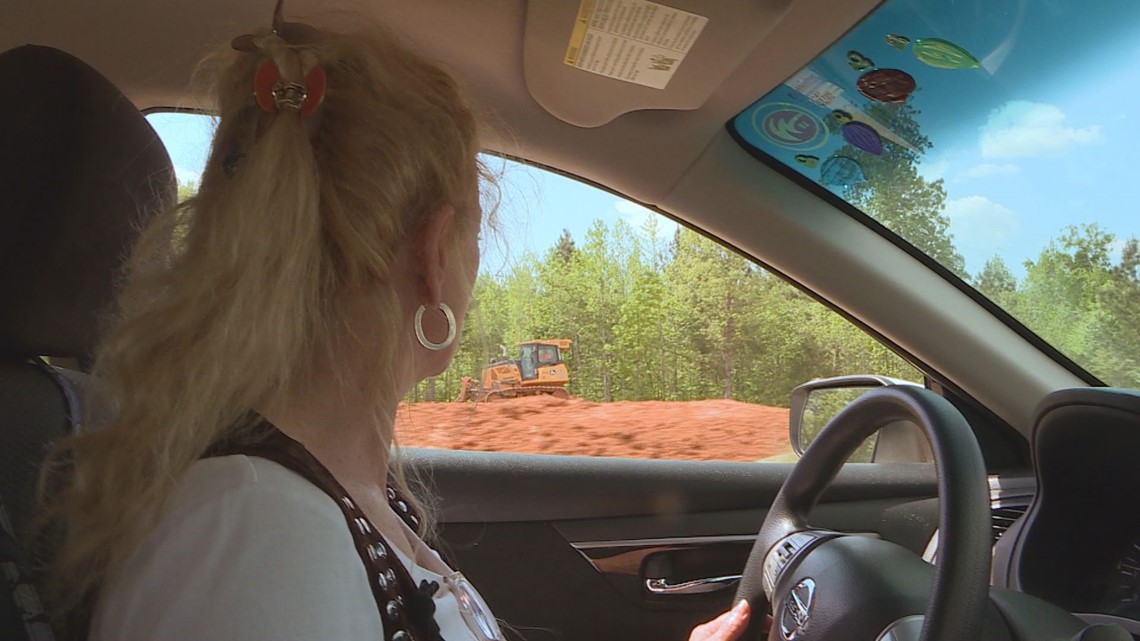
During one recent ride, DeLaPorte pointed to the tightly-packed neighborhoods and increased congestion as two of the biggest problems with the area's growth.
She also expressed irritation with the descendants of farmers who, unlike Sifford, sold their inherited land to developers.
"They can just live off their inheritance," DeLaPorte said, before referencing a lyric written by songwriter Joni Mitchell. "Developers bought the land, flipped it and took paradise and put up a parking lot."
"Who am I to say stop it?" Cecil Dellinger, Jr.

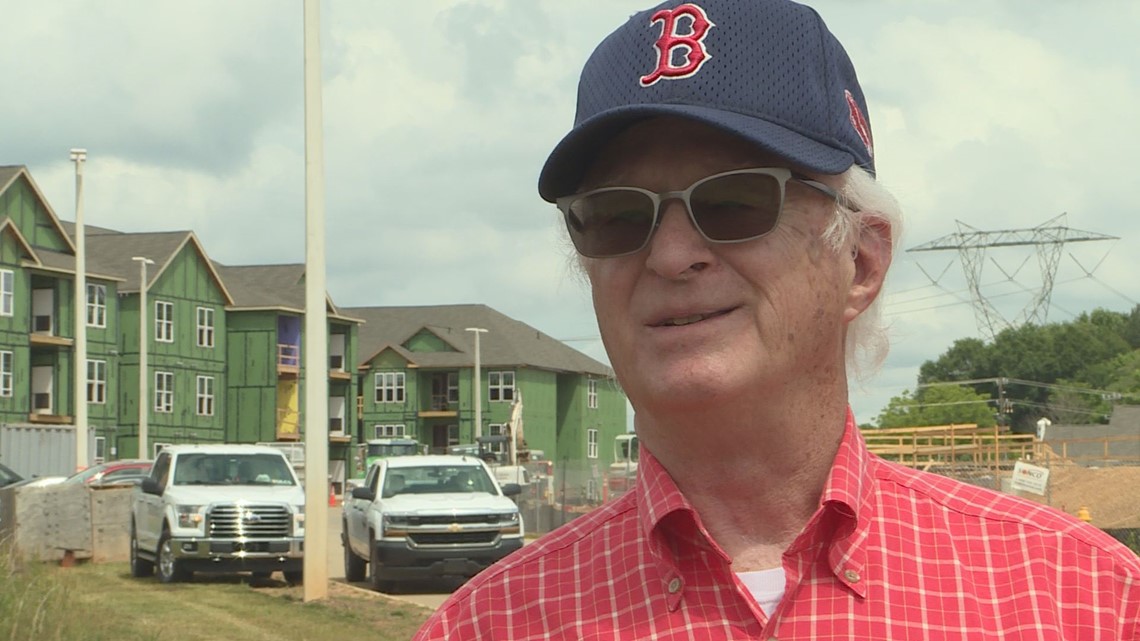
Just north of the intersection of N.C. Highway 16 and N.C. Highway 73 is the location for a newly-built, large shopping center, anchored by a Publix grocery store.
Next to the shopping centers, construction crews are building several apartment buildings and a clubhouse, located in the center of the complex, for future tenants.
Standing 500 feet away, Cecil Dellinger, Jr., pointed to where the clubhouse is slowly rising up.
There, in 1939, was where Dellinger was born, inside a house his father built by himself.
Dellinger built his own house, also by himself, next to his parents on their family farm.
"I figured at that time, this would be it," Dellinger recalled. "This is where I'd spend the rest of my life, but society didn't allow me to do that."

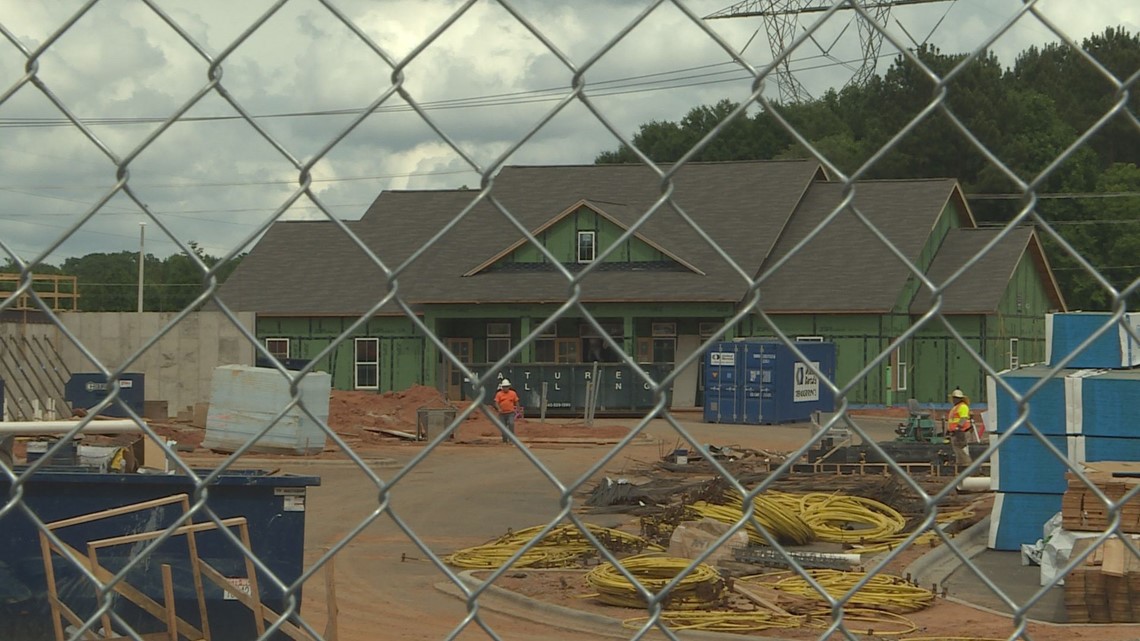
He said when the county designated the land around Highways 16 and 73 for economic development, developers started knocking on people's doors to buy up properties.
While many of their neighbors sold their land, Dellinger and his sister stayed put, facing down higher property taxes and relentless interest from developers.
After several years, Dellinger and his sister began thinking of their descendants' financial futures before ultimately selling their land.
"It's kind of like a squeeze when you get into that situation," Dellinger said. "The way of living changed at that point. We just decided to go with the flow."
He believed that wave of growth, which made residents like DeLaPorte nervous, won't end.
"Who am I to say stop it?" Dellinger asked. "Eventually, it's a matter of economics. If the money supports it, you're going to have it."
Contact Brandon Golder at bgoldner@wcnc.com and follow him on Facebook, Twitter and Instagram.

